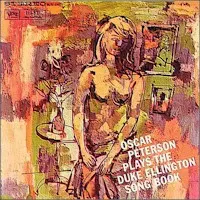Bitrate: 320K/s
Time: 48:23
Size: 112.8 MB
Styles: Blues vocals
Year: 1976/1988
Art: Front
[ 5:57] 1. I'm Gettin' Long Alright
[ 3:01] 2. I Wonder
[ 3:01] 3. Confessin' The Blues
[ 3:34] 4. Romance In The Dark
[ 2:48] 5. C.C. Rider
[ 3:15] 6. Cherry Red
[ 2:57] 7. In The Evenin'
[ 4:09] 8. I Love Paris
[ 4:05] 9. It Could Happen To You
[ 4:50] 10. Bye Bye Blackbird
[10:40] 11. Blow Top Blues/Jelly Jelly Blues/Long John Blues
Confessin' the Blues has translated to CD beautifully. The first seven numbers show off Esther Phillips doing sophisticated, big-band blues, backed by a small orchestra led by Onzy Matthews, giving direct and pointed yet elegant performances of "Confessin' the Blues," "I'm Gettin' 'Long Alright," and "C.C. Rider." The last four numbers, which comprise nearly 24 minutes, have Phillips doing a jazzier set to start with, backed by a leaner band (most notably Jack Wilson on piano), in a set produced for record by King Curtis -- the final medley of "Blow Top Blues"/"Jelly Roll Blues"/"Long John Blues" is the highlight of the set, showing Phillips in a bluesy setting. The quality of the recording from both years is excellent and comes out well here. Phillips and her principal accompanists, Herb Ellis (guitar) and Lou Blackburn (trombone), are in excellent form on this 1966 set. ~ Bruce Eder
Recorded at Western Recorders, Hollywood, California on October 7, 1966; United Studio, Los Angeles, California on October 14, 1966; live at Freddie Jett's Pied Piper Club, Los Angeles, California on January 31, 1970. Originally released as Atlantic SD (1680).
"Little" Esther Phillips (vocals); Herb Ellis, Francois Vaz (guitar); Sonny Criss, Gabriel Baltazar, Raymond Triscari (alto saxophone); Teddy Edwards, Louis Ciotti, Ira Schulman (tenor saxophone); Jay Migliori (baritone saxophone); Robert Rolfe, Melvin Moore, Bill Clark, James Smith, Al Porcino (trumpet); Louis Blackburn, Richard Leith, Roland Myers, Peter Myers (trombone); Rodgers Grant (piano); Jack Wilson (piano, electric piano); Ike Isaacs, Victor Venegas (bass); Chuck Rainey (Fender bass); Donald Bailey, Charles Grant (drums). Producers: Nesuhi Ertegun, King Curtis.
Recorded at Western Recorders, Hollywood, California on October 7, 1966; United Studio, Los Angeles, California on October 14, 1966; live at Freddie Jett's Pied Piper Club, Los Angeles, California on January 31, 1970. Originally released as Atlantic SD (1680).
"Little" Esther Phillips (vocals); Herb Ellis, Francois Vaz (guitar); Sonny Criss, Gabriel Baltazar, Raymond Triscari (alto saxophone); Teddy Edwards, Louis Ciotti, Ira Schulman (tenor saxophone); Jay Migliori (baritone saxophone); Robert Rolfe, Melvin Moore, Bill Clark, James Smith, Al Porcino (trumpet); Louis Blackburn, Richard Leith, Roland Myers, Peter Myers (trombone); Rodgers Grant (piano); Jack Wilson (piano, electric piano); Ike Isaacs, Victor Venegas (bass); Chuck Rainey (Fender bass); Donald Bailey, Charles Grant (drums). Producers: Nesuhi Ertegun, King Curtis.
Confessin'The Blues




















